Plenary 2: How Diversity Can Be Harnessed for the Common Good
Synopsis
This plenary addresses the tools and concepts to understand a world marked by super-diversity, that is, the existence of highly complex and heterogeneous societies. It raises questions about how to talk about identities and with people of different and overlapping identities, as well as appreciates the complex but important role the intersectionality of identities plays in forging social cohesion. It discusses the way that our belonging and identity overlap across issues such as gender, class, race, nationality, religious and worldview, both as individuals and groups.
Only by understanding complex interconnections and interdependencies between individuals and social systems can we increase our social capital and create opportunities for individuals in society to form deep bonds across differences, towards a common good.
Visual Summary
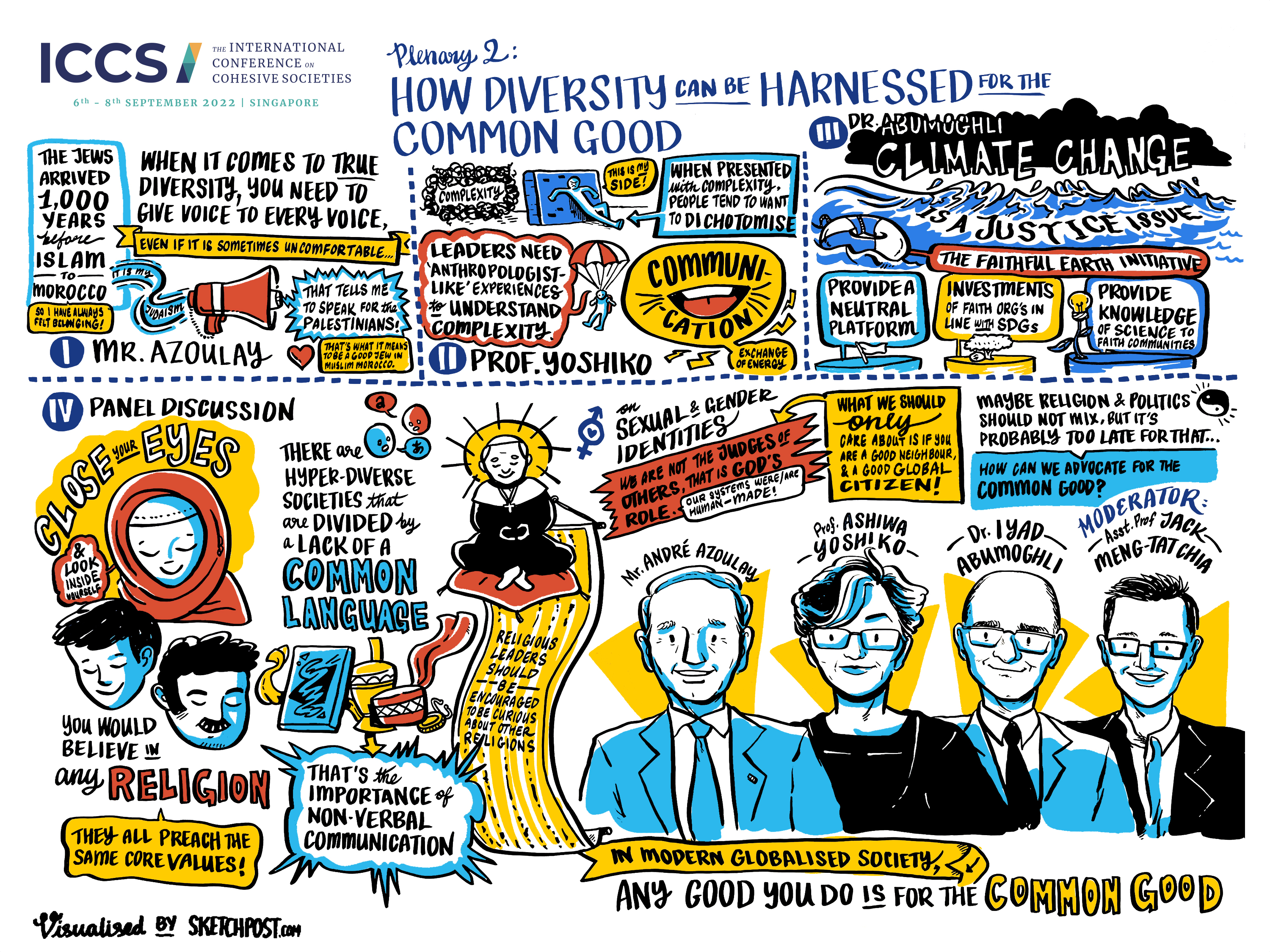
Speakers
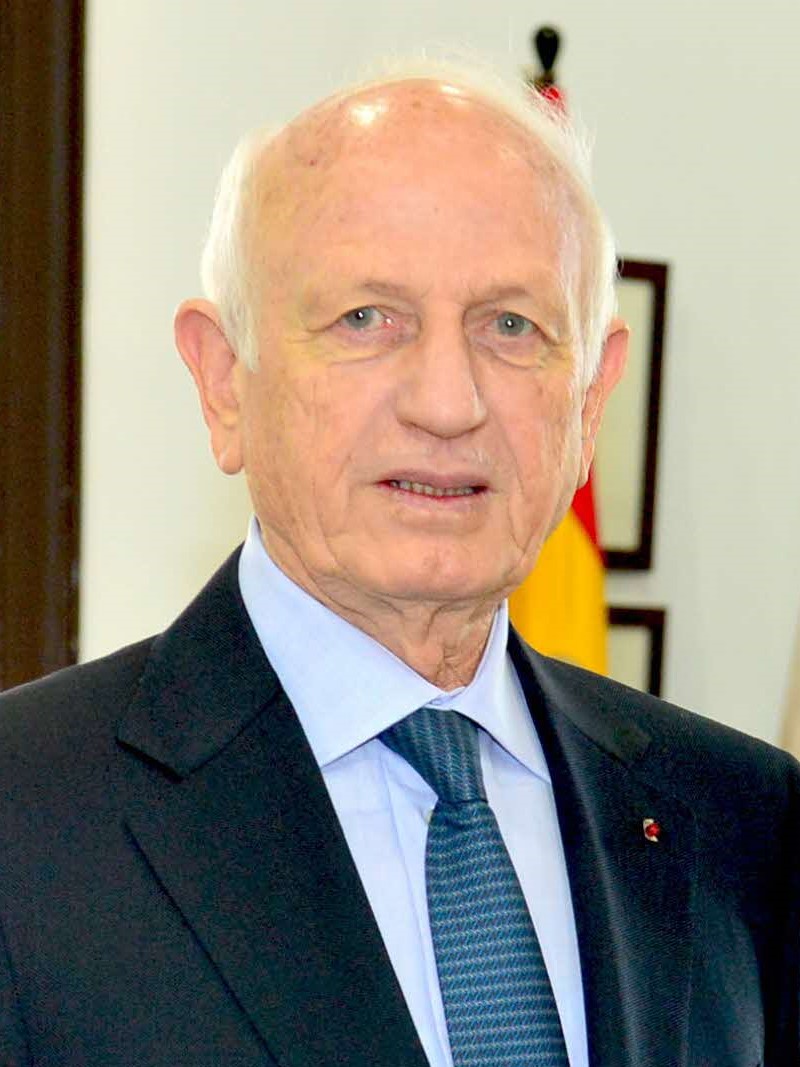
Mr André Azoulay
Adviser to H.M. King Mohammed VI of Morocco
President of the Executive Committee, Foundation for the 3 Cultures and 3 Religions (Sevilla)
Founding President of the Essaouira-Mogador Foundation
President of the Moroccan National Foundation for Sciences Engineering
Mr André Azoulay is an ardent ambassador of Morocco throughout the world. He is a strong advocate for peace and dialogue between the Arab Muslim World and Jewish Communities in Europe, USA, Morocco as well as the global Arab and Jewish diasporas. He is also well-known for contributions to the peace process in the Middle East and for the many interfaith cross-cultural initiatives he spearheaded.
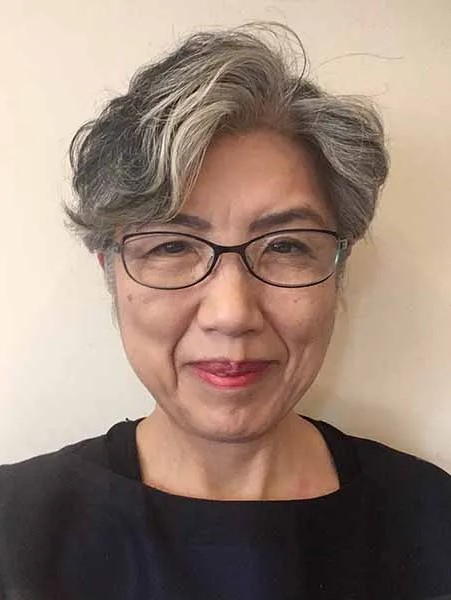
Professor Yoshiko Ashiwa
Professor of Anthropology and Global Studies
Founding Director of Institute for the Study of Peace and Reconciliation
Hitotsubashi University
Professor Yoshiko Ashiwa’s research interests include religion, arts, culture and values, modernity, globalisation, and social movements mainly in Asia, especially Sri Lanka, China and Japan. She is co-editor of Making Religion, Making the State: The Politics of Religion in Modern China (2009, with David Wank).
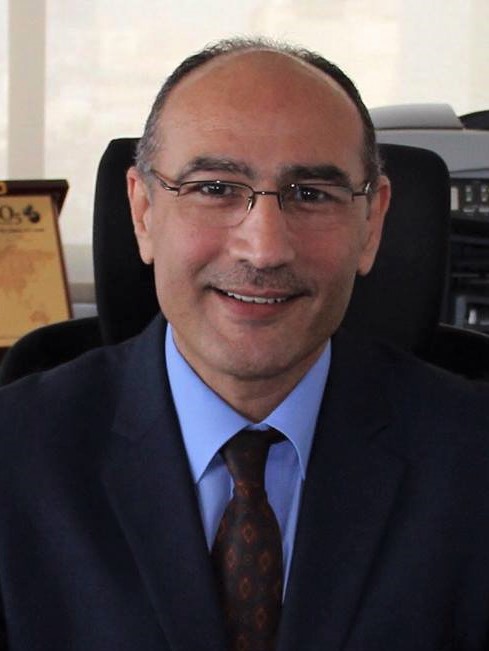
Dr Iyad Abumoghli
Founder and Director of the United Nations Environment Programme’s (UNEP) Faith for Earth Initiative
With more than 35 years of experience with international organisations, the private sector and scientific institutions, Dr Abumoghli’s expertise focus on strategic planning, sustainable development, natural resources management, interfaith collaboration and knowledge and innovation. He is also the Lead Principal Advisor on Engaging with Faith-Based Organisations at UNEP.
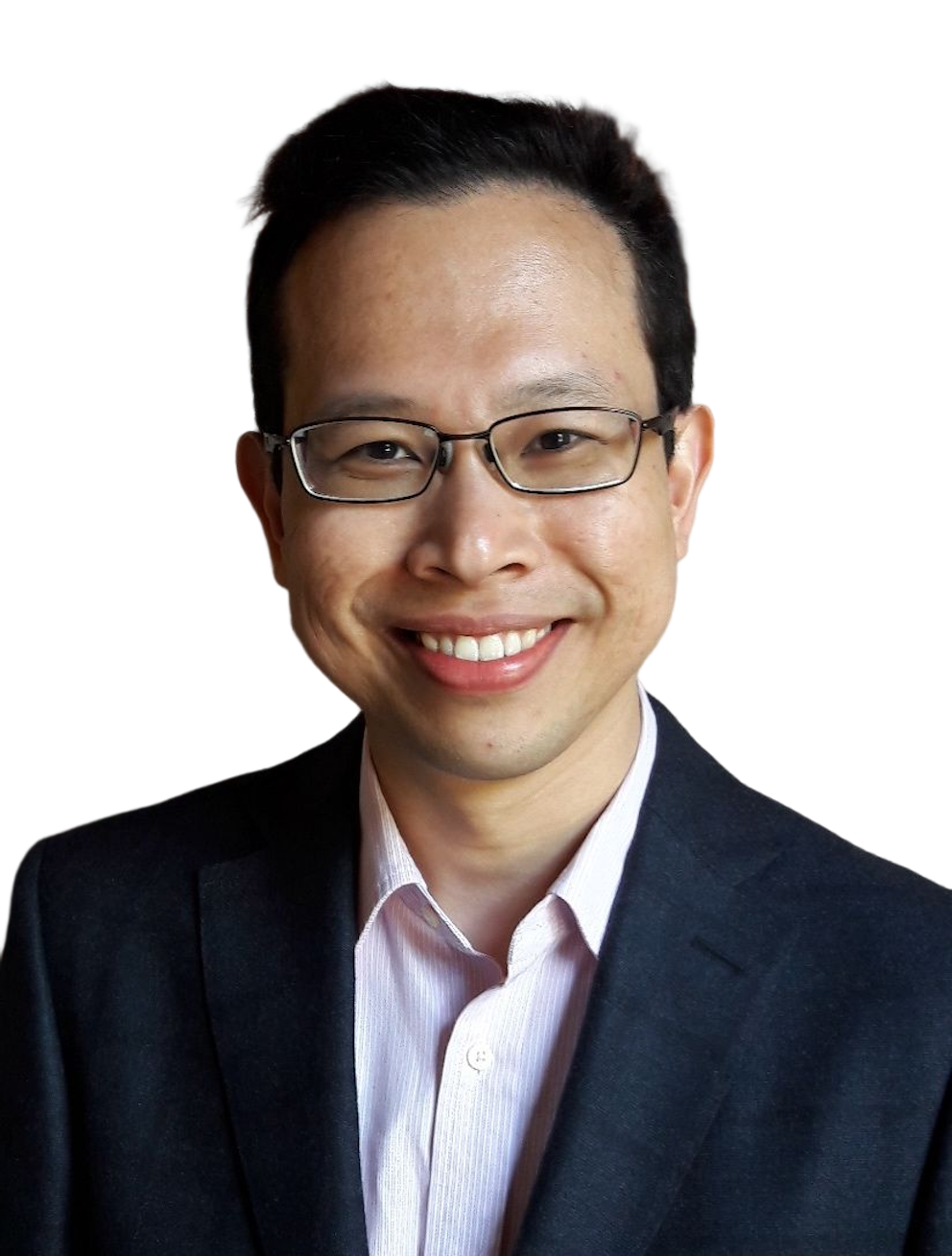
Moderator:
Assistant Professor Jack Meng-Tat Chia
Assistant Professor of History and Religious Studies, Faculty of Arts and Social Sciences
National University of Singapore
Assistant Professor Jack Meng-Tat Chia specialises in Buddhism in maritime Southeast Asia and has broader research interests in migration, diasporas, transnationalism, pilgrimage and religious diplomacy. He is also an associate of the Religion and Globalisation Cluster at the Asia Research Institute and co-chairs the Theravada Studies Group of the Association for Asian Studies.

